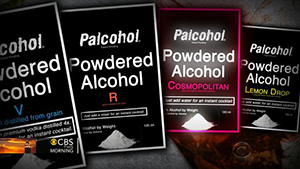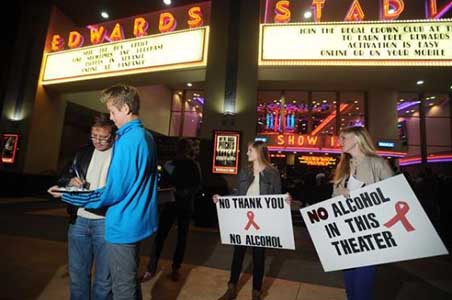Blog
Search
Blog
State Bans on Powdered Alcohol Advance
- Details
- Created: Thursday, February 19 2015 14:18

***Edited on March 12, 2015. Michigan defined powdered alcohol in House Bill 5798, which passed on October 22, 2014. HB 5798 originally contained ban language that was removed before the bill was approved. Michigan Senate Bill 1072 would prohibit the sale or use of powdered alcohol, and is still under consideration.
Since 2014, legislators in several states have proposed or passed bills to prohibit sale and/or possession of powdered and/or crystalline alcohol. They cite health and safety concerns, including the potential for accidental overdose, easier access for youth, and the danger of ingesting the product by snorting.
Thirteen states are currently considering legislative proposals to ban or restrict powdered alcohol: Colorado, Hawaii, Illinois, Iowa, Kansas, Kentucky, Michigan, Mississippi, North Dakota, New York, South Carolina, Utah, Iowa and Wyoming. Virginia passed its bill banning the sale or possession of powdered alcohol in February. Pennsylvania has taken administrative action to ban powdered alcohol; the Department of Liquor Control has said it will not allow powdered alcohol products into the state.
In 2014, 3 states passed bills to prohibit powdered alcohol: Louisiana, South Carolina, and Vermont. Minnesota, New York, New Jersey, and Ohio failed to pass proposed legislation in 2014.
Alaska placed a ban on powdered alcohol in 1980, and California has allowed sale of alcohol in powdered form since the 1970's.
For a list of powdered alcohol bills, their sponsors, and summaries by state and by year, visit our legislation page.
TAKE ACTION: Send a letter to federal administrators telling them to ban powdered alcohol.
Pro-Industry Author Recommends Drinking, Fails to Disclose Conflict of Interest
- Details
- Created: Monday, January 26 2015 16:37

Rubin's recommendation for physicians to instruct adult patients to drink moderately is both premature, as well as unsupported by the preponderance of alcohol research. The myriad risks of alcohol consumption, including liver disease, stroke, increased risk of injury, and cancer, do not support a recommendation for nondrinkers to start drinking regularly. Even typically industry-friendly publications are questioning Rubin's recommendations.
Rubin currently serves as a consultant to the Medical Advisory Board of the Alcohol Beverage Medical Research Foundation (ABMRF), an organization funded by and associated with, beer producers and related trade groups. He has been a consultant for ABMRF since 1992. ABMRF has also funded multiple past projects of Rubin's designed to identify benefits of alcohol consumption; published articles describing those studies are also missing conflict of interest statements.
Orange County, CA Effort Defeats Local Movie Theater Alcohol Sales
- Details
- Created: Tuesday, January 27 2015 10:39

Opponents of the theater's application to serve alcohol
on the premises gather petition signatures outside.
What worked? Residents set up a website to inform the public of the proposed license and its potential impact; attended City Council meetings and voiced opposition to the license; organized demonstrations in front of the theater; and gathered signatures online and in-person to oppose license. The opposition involved youth at various levels of organizing and did it all within a short period of time.
The group's victory is an exciting example of grassroots organizing that beats back corporate interests, gets effective alcohol policies enacted, and provides a model for community resistance to the alcohol industry.
More Articles ...
Subcategories
Help us hold Big Alcohol accountable for the harm its products cause.
| GET ACTION ALERTS AND eNEWS |
STAY CONNECTED    |
CONTACT US 24 Belvedere St. San Rafael, CA 94901 415-456-5692 |
SUPPORT US Terms of Service & Privacy Policy |
Copyright © 2024 Alcohol Justice. All Rights Reserved.
Joomla! is Free Software released under the GNU General Public License.


